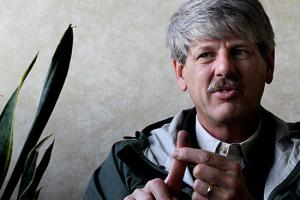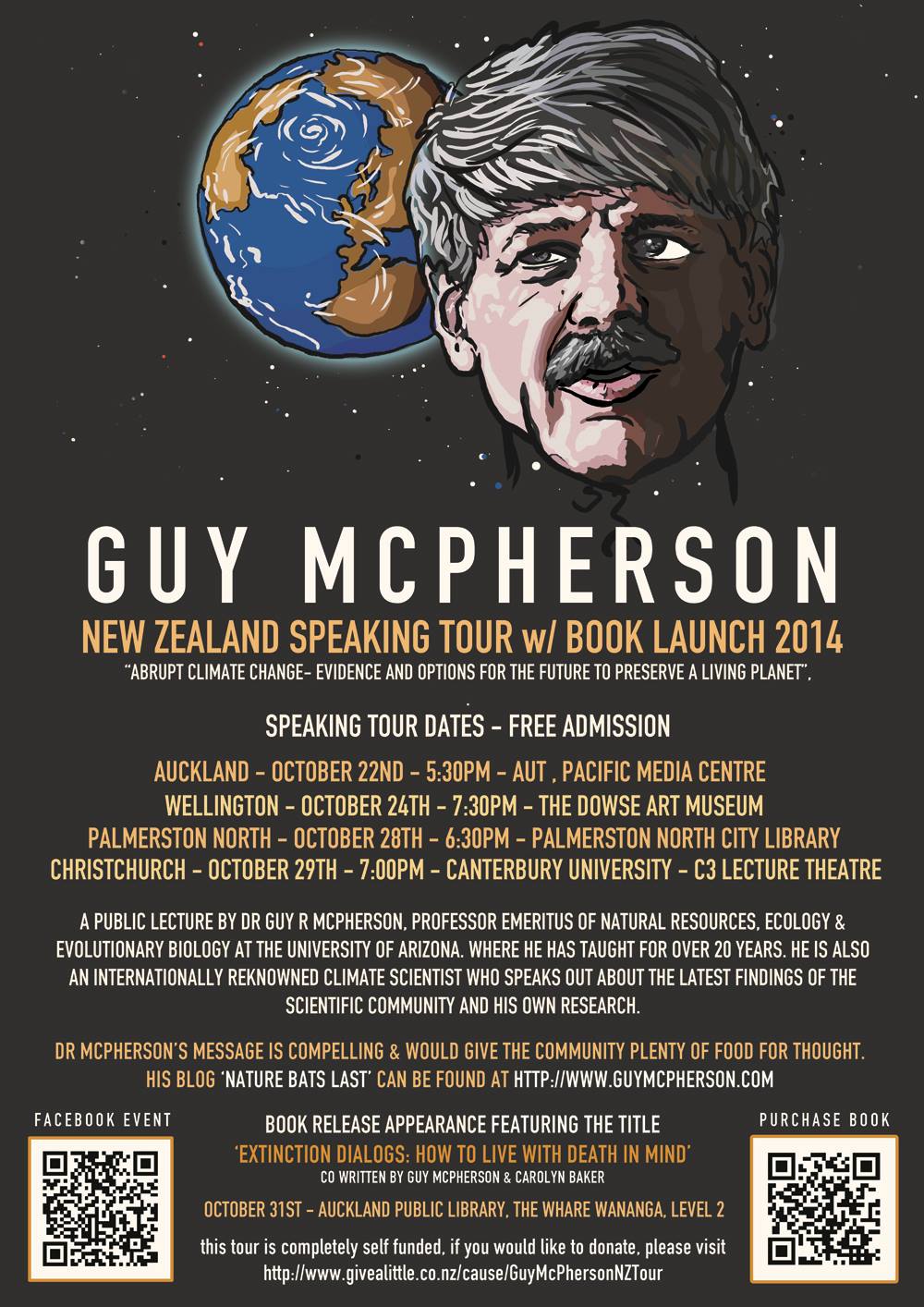
AUCKLAND (Pacific Media Watch): Humans face extinction within 40 years as a result of abrupt climate change unless we put an immediate stop to the trappings of civilisation as we know it – cars, hot showers, shops and everything else, says an American ecology academic.
Guy McPherson, professor emeritus of Natural Resources, Ecology and Evolutionary Biology at the University of Arizona, where he has taught for more than 20 years, has been researching "abrupt climate change" and is due to give a lecture on options for the future at AUT University tomorrow as part of his New Zealand speaking tour.
He told Pacific Media Watch that people tended to think of climate change as something that occurs in a linear fashion because evolution had encouraged a belief that the near future would be like the recent past.
However, abrupt climate change meant this was not the case. Earth had warmed only 0.85 C since the Industrial Revolution began, but recently has begun heading towards warming to a temperature beyond that which humans have ever survived.
Given that there was about a 40-year lag between carbon dioxide emissions and warming, the human species was ill-equipped to deal with the increase in temperature that would be faced, Professor McPherson said.
In the face of this, current strategies to combat climate change were unlikely to be enough.
Paraphrasing Tim Garrett of the University of Utah, Professor McPherson said: “Civilisation is a heat engine. The only way to stop runaway greenhouse is to terminate civilisation – no grocery stories, no fuel stations, no water coming out the of taps”.
Unworkable solutions
Solutions to climate change that were rooted in civilisation would not work because that was the problem, he said.
“We must stop all civilisation” he said.
McPherson said it was unlikely that this solution would be adopted politically, however, because it was not at all practical.
“I don’t know 40 people who would vote for that and I can’t imagine a political candidate running on that campaign. The only way to stop runaway climate change is something that nobody would ever vote for and ever pursue. The fact that industrial civilisation drives 150 to 200 species to extinction every day really does not enter the public discussion, or that at some point, this becomes us."
Professor McPherson strongly suspects that people will not know they are becoming extinct until it is too late.
“I get a lot of pushback even from mainstream climate scientists when I mention human extinction. Facing a choice between utter despair, hopelessness and total extinction, I suspect we are going to revert to total extinction” he said.
Geographically, people would probably want to move to coastal areas in the southern hemisphere as these areas would heat up less, and because Antarctica still had a tremendous amount of ice and would do for a long time, he said.
McPherson himself has moved to a straw-bale home on a shared homestead in New Mexico, US.
An abrupt climate change is defined as one which occurs when the climate system is forced to transition to a new climate state at a rate that is determined by the climate system energy-balance, and which is more rapid than the rate of change of the external force.
Dr Daniel Hikuroa, research director of Ngā Pae o te Māramatanga, New Zealand's Māori Centre of Research Excellence and Dr Sebastian Leuzinger, deputy director, Institute for Applied Ecology New Zealand are the discussants in tomorrow night’s lecture.
This work is licensed under a Creative Commons Attribution-NonCommercial 3.0 New Zealand Licence.




